Podcast transcript: Building 5G networks with cloud
Read the full transcript for this episode of the IT Pro Podcast
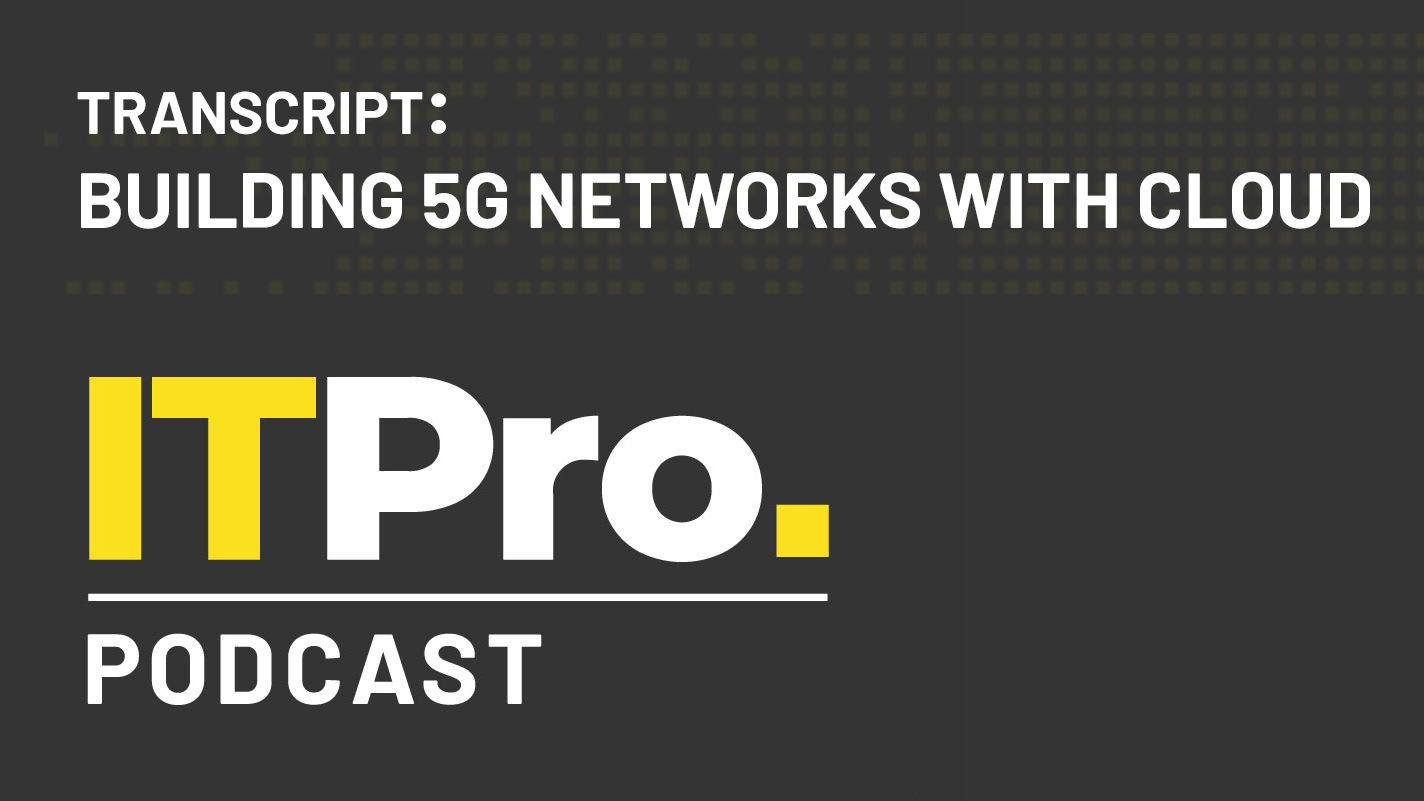
This automatically-generated transcript is taken from the IT Pro Podcast episode ‘Building 5G networks with cloud’. To listen to the full episode, click here. We apologise for any errors.
Adam Shepherd
Hi, I'm Adam Shepherd, and you're listening to the IT Pro Podcast. 5G has been one of the most talked about new technologies of the last several years, promising benefits not just for personal connectivity, but also for industrial use cases and smart city deployments. We've talked before in the podcast about some of the ways in which it can help solve challenges like rural broadband gaps and the digital divide. However, 5G does not stand in isolation, it's deeply intertwined with cloud platforms and services in terms of both its own rollout and the services it enables. Today, we're discussing the relationship between cloud and 5G, and we're joined by Eric van Vliet. Dell's EMEA head of telecom market development. Eric, thanks for coming on the show.
Eric van Vliet
Thank you. Glad to be here.
Adam
So let's start off with a little bit of scene setting. Eric, how mature are 5G deployments both in the UK and around the world?
Eric
When you talk about maturity, with telco networks, seeing that these telco networks are usually a 10 year lifespan, looking at 4G, looking at 3G, maturity is the hardest thing to quantify. Because having a connection on your phone that says 5G, you could say well, now the deployment's mature, but with 5G being all about the additional services that have nothing to do with voice or even simple internet on your phone, I think we're at the beginning stages of what 5G actually can can mean to a consumer and more importantly, actually the enterprises that are out there. So in my opinion, I think, you know, maturity of 5G is at the early stages.
Adam
Okay, and is that kind of variable in different geographies, like for example, I know, the UK in particular, has not been able to roll out the submillimetre 5G wave technology yet.
Eric
Yeah, well, when you talk about 5G, a lot of the telcos will talk about non-standalone 5G, which is all about getting that 5G signal to your phone. And then standalone 5G which means it's actually a complete 5G network with with much more 5G capabilities running into the, in their core network. So I think from a geographic perspective, the Western world, definitely majority of the countries now have that 5G non standalone, so leveraging all they've done in 4G, but getting a 5G signal, benefiting from better coverage, wider, more devices, I think that that's very much there in the Western world, you see in other areas like Latin America, or let's say Africa that they might be behind. But definitely in the Western world, there is that that 5G signal. But, again, if we then look at the more complex services that we want to get out of 5G, that will vary very much also in the Western world, where some are only the real beginning of getting their network ready, where other countries have already heavily invested in that cloud platform that sits in their network to deliver those services.
Get the ITPro daily newsletter
Sign up today and you will receive a free copy of our Future Focus 2025 report - the leading guidance on AI, cybersecurity and other IT challenges as per 700+ senior executives
Adam
So speaking of which, how is cloud technology facilitating the development and rollout of 5G services?
Eric
So traditionally, mobile networks were - well, are - a critical service. So if we look at mobile networks, they are today's critical service that are at the foundations of any critical necessity you have in in a country like an ambulance or fire service, having that connectionanywhere, that you can call, that is so important. So traditionally, mobile networks have been built with very stringent requirements to make sure that they're always available, that there's, there's there's there's the security of that you have a signal. Now, what that means is that when you build that network, it goes slow, which usually takes a long time, and it's not very flexible. And what 5G is changing, because it's taking that voice out of the equation, basically, it actually means that building a 5G network means you want to be much more agile, you don't know yet what the service will be in five years times that you need to offer to your customers, but you need to be ready for it. Now this is where cloud technology really helps a service provider. Because within cloud technology, we have that elastic or flexible compute that enables you to scale up when needed, scale down when you don't need it. Different services might need different types of clouds and and what the cloud has built over the last decade is that that flexibility; be ready for anything, almost. And that's where clouds and especially hybrid clouds - and we can go into that in a minute - hybrid cloud is really helping service providers deliver the network, that critical piece, and being able to be more flexible on also that network, different vendors they can leverage on that cloud together, but then also be ready for the unknown, the services that are eventually going to really help them monetize on their network.
Adam
Because I think all of us will be familiar with, you know, the benefits of the elasticity of the cloud that you talked about, from the perspective of, you know, a standard organisation, a standard enterprise, I would imagine that telcos and network service providers have a lot more unique needs when it comes to, when it comes to their, their compute and their infrastructure. What kind of considerations do do network providers and telcos need to have in mind when they're looking at cloud platforms and cloud technologies to support the rollout of 5G?
Eric
There are some technical needs they have that are critical to actually have a 5G network around things like timing to make sure that when you go from one mast to the next on your phone, that actually your connection doesn't break. But these are, these are real technical necessities, which is, which is just based on the hardware, this is where Dell comes in and delivers that those different special pieces that you wouldn't find in a normal cloud. But the thing, the other big challenge they face is the location where that compute needs to sit. Traditionally, cloud technology is very much around centralised compute, right? When you look at an enterprise, you started with having your on prem data centre, where your your applications ran, and then you you moved into a public cloud, which still meant everything was in the same place. But because of the nature of a mobile network, now, you're, you really have your users disaggregated all over the all over the country, for example, so that service that you're offering to your customer now has to be able to work anywhere, which means that you have to deal with running your clouds - and this is where hybrid cloud really comes in - running your cloud both on a central location where your core applications work, your billing, your support systems, but then the other services, they'll get disaggregated on your cloud into the network, which is a big challenge, because you start to talk about locations that could be next to the roads where there's a cell tower or Point of Presence, what they call small huts that you might see in your neighbourhoods, where today is more real telco equipment, which is purely focused on access; in the future, there will be also cloud equipment that will actually deliver that additional service that goes over the access.
Adam
So conversely, what impact is 5G technology having on the provision of new cloud services? We've talked a lot about some of the ways that cloud platforms are being used to kind of increase the 5G rollout. But when 5G actually lands, what services will it enable?
Eric
There's there's a couple of services that you actually already mentioned in your intro. I think one of the the the first real services which 5G will help move forwards is that rural broadband, so using mobile network to actually have broadband in your home. That is reducing the costs by not having to drag fibre to the home, but be delivering that, we call it last mile, over over the air. But then if you look at other services, because of 5G's technology capabilities, such as better accuracy of location, more devices in a square foot, and bigger pipe, you can start thinking about delivery in high density areas like football stadiums, watching a review of your, of the goal on your phone, but you watch it on your phone when you want it rather than looking at the big screen. It's a simple service from a consumption perspective, but actually requires a quite an enormous amount of broadband or bandwidth capabilities to the different devices on demand so the user can decide and there's a lot of people that probably will want to do the same thing at the same time. So you also have a high density so that's an example and you can translate that to other non sport areas like a music, let's say a music event where you on your phone or on your device can see what is on the big screen. Or you can see the festival that's on another big screen. And this is when, when you start to think, it's a lot about content. It's a lot about video content, and also about content creation. So if you look at our culture, we've moved from content consumption really in content creation. Applications, like TikTok have shown that over the last last year is that we're, we're no longer consuming content, we're much more creating content and sharing. And again, 5G will help with that, because you get better quality, because you have a better bandwidth, but you also you can do joint content. So with the low latency, if you now have two or three people do content creation in a different area, but you want to have that all together, the low latency will help for that to be much more seamlessly. So there's, there's a lot of different things, it is about content, it is about augmented reality, walking around and your phone knows exactly where you are. So rather than knowing you're, let's say in the vicinity of three, four shops, it knows you're in front one shop. So what you get on your phone, if you would want is exactly what a shop would want on to advertise on your phone. So those are the things I think 5G will really enable. And because of its its improved technology advantages. And then I always say 5G is not what you know, what we think it's going to be, it's what we want it to be because it's so software driven. And we know from the cloud world, if if you can create it in software and put it in the cloud, it will it will eventually become a service that a service provider will offer.
Adam
And of course, one of the big use cases that we've heard about for 5G specifically, is factory automation, and kind of industrial IoT. And that whole side of things. 5G has been touted as a big enabler for providing connectivity for devices in remote locations, edge locations, all of that kind of thing, and enabling them to be networked together, centrally managed, centrally administrated, and for data from those devices to be streamed in near enough real time back out to the cloud for kind of analysis and, and insight gathering. Is that something that you've seen kind of starting to starting to actually come to life now that 5G is beginning to roll out?
Eric
Yeah, we have. I think automation has also a role to play in in the network itself to help service providers deploy the network. But if we're looking at the, let's say, the enterprises, that are leveraging automation in their factory or like a company like Ocado, in their automated picking of groceries; 5G, because it can accelerate that automation will have an immediate impact on both bottom line and top line from an enterprise. We can do more in the same amount of time, because now the robots can go faster, because we are faster to react to something that's in the way of the robot. So so that, for example, that that's clearly we can do more customers per hour, but also on the bottom line, because now maybe something that couldn't be automated, because there was no reaction time from a safety perspective, now can be automated. So also there, we see that that 5G has a direct impact how, how these factories operate. So I think and I think that is key to understand, but why it's so, such an important event, 5G, is that it can help enterprises do more. But it can also help enterprises to reduce costs, things that couldn't be done before. And that's and that will not stop. And they think that's where 6G will probably have an even bigger impact with whatever 6G will be. And this is how we're going to see our own, let's say our own culture, but also our working life evolve more and more. Another great example is if we if we thinking back to the first Google Glass that existed, where people said you look through your glasses, and it shows you, I don't know, a tool that needs to be used for a device. Now that was great, conceptually, but you needed to actually the computer to make that happen. nearby. 5G can deliver that out of the cloud. So 5G could actually make that a reality. More lower costs, anywhere could be delivering such as service to a glass from any any of the vendors, that then says to the engineer that sits on top of the tower, 'warning, you're going to touch something that is dangerous'. And these are these are things that are amazing to consider that if we can deliver that kind of service over 5G, suddenly, we can have a direct impact on safety, on speed. And so it touches a lot of different use cases just by the delivery of a 5G network.
Adam
So Eric, can you tell us a little bit about how some of Dell's telco customers are using cloud technology to expand their business?
Eric
So obviously, they're using cloud technology to build their network. So they're using cloud technology to deliver connectivity in new areas where they might not have today, connectivity. So they're able to expand their network into rural, for example, where maybe today they can only deliver 3G signal, now they can deliver a full 5G signal due to cloud technology. So that's a clear how to use it. The second, the second part, what what they're doing to deliver new services is the combination of voice over fixed at home, and mobile. So one augmented connection, rather than you have your individual services. So service providers always delivered, you could say triple play: media, voice and internet. And now being able to almost deliver that over one network allows them to, to combine services and think about how I leave the house, while I watch video on demand. And it just continues on my phone. If I want, I just have to hit play again. And it just carries on when I get on the Tube, for example. These kinds of services, yeah, they're not critical to my existence in life, but they're very convenient. I think that's how service providers will, will start to become more the connectivity or the service provider for a household where maybe now your your mobile phone is from service provider A, your broadband is vendor B and your television is vendor C, because you want to cherry pick. That convenience is going to create an environment where they say, well, I'll pick one service provider, because look how easy all this is. And service providers are also driving this cloud technology now. For example, when you leave your home, your phone is no longer on your home network. So anything, let's say your fridge or whatever connected device you have connected to your home network, I suddenly have no more access to. Now there's there's ways where cloud technology from third parties can help connect it through apps. But what if my phone just still has access to that network, via the service providers. So I can still easily connect to every device in my house without the need for a third party. So from a security perspective, as well, those those are advantages that that service providers can start to offer by the technology of 5G because you still have the right connections, and then also cloud technology by being able to leverage that cloud technology to have those services without needing a bigger home hub in your house, for example, by just running that close to the home, for example, on the cell side.
Adam
Yeah, and I think that point you raised about network operators becoming the one stop shop for for consumers, you know, to manage all aspects of their digital life is something that a lot of telcos are going to really gravitate towards, particularly when it comes to the layering on of additional services. So things like security services for devices, is something we've started to see network operators and vendors move into; same thing with cloud storage for things like photos and movies and things like that; same with kind of various subscription based stuff, you know, you see network operators partnering with streaming platforms to kind of provide that piece of it. And I think that idea of a one stop shop kind of digital connectivity kind of pipe is something that is going to be very popular over over the next several years.
Eric
Agree and I think it translates also to the enterprises because that this is where then Private 5G, replacing Wi-Fi, which which they called networks, you know, the service providers could call it network slicing, where you bring the 5G signal privately into the, into the the enterprise. Suddenly you say, Well, I have my private 5G from a service provider. I would say all my employees now, their company phone is from the same service provider. I want to leverage their cloud. So my, my, let's say my my backhaul, my fixed fibre or whatever you you have into your building is now suddenly also from the same service provider, they start to also offer now the full spectrum on the enterprise. So I think that that one stop doesn't just translate to to consumers for convenience, but it also translates to enterprises for the ability to do more if everything is from one. And I think that's, that's where 5G really from a monetisation perspective for service providers will become their their their biggest focus, because that's where the biggest struggle is from a service provider is to to get more money because nobody's paying more for their mobile phone subscription. Maybe if you combine the services, you can get some extra money. But really, if it's too expensive, that convenience is just not that attractive. But when it's when you talk about enterprises, to have a service, and therefore, this is critical for the enterprise business, you start to pull them into as a service provider, they will start to pull them into their domain. And and then it's just a matter of more and more services. And before you know, it is really hard to change from a service provider, and so on. I think that's where really, a service provider, the strength of 5G and cloud technology is going to kind of bring it home for them.
Adam
So here's something we don't discuss on this podcast often. But what is the opportunity for channel businesses in this space? Because there's a number of indicators, to me, that says this could be a potential goldmine for channel companies who are willing to get in early, but I'm keen to hear your perspective.
Eric
So so channel partners, they have obviously a big role to play for that local deployment, imagine the delivery of specific devices in a local area, where a channel can be a retail route or a distribution route for, let's say, a service provider and Dell that have a private 5G solution. Or, but also, when you start talking about channel, the clouds, you know, the clouds model for enterprises, traditional public cloud has already that, that commercial path for channel; reselling cloud. I think service providers, they lack the experience to sell cloud compute as a model, right, they are very good at selling the actual connectivity services that go over that as well, especially the ones related to that connectivity. But when it starts to talk about just cloud resale, clouds, compute resale, compared to the public cloud offerings, they have deficits. And I think that's where from a channel solution, there's a really big opportunity to start selling that, that hybrid cloud, that edge cloud, to the enterprises. And if you see what's happening from an application perspective, there's a lot of community based, like mobile Jags is a good example, where the service providers are creating that sandbox for people to create their applications. But then to sell those applications, that, there's no real marketplace for that. And that concept doesn't really work for a service provider, because it's not a easy click, we have this service, there's a little bit more to do with it. And when you look at these smaller software companies, they don't have the capacity to support hundreds of customers in in a in a country. So who's going to actually support that application? This is where the channel can be that scale for the smaller software vendors. And that is really, I think, like you said, the gold mine for the channel business when you talk about 5G and cloud.
Adam
So we've talked a lot about some of the ways that cloud and 5G naturally complement each other and some of the ways that they can be used to to support each other. Is it possible to run 5G infrastructure without leveraging the cloud in some capacity?
Eric
The connectivity piece is definitely possible. So bringing 5G to a mobile phone and to maybe even rural broadband, bringing that connectivity, I think you don't require cloud technology, it will be more expensive in the long run, it will definitely impact the innovation pace. So you deploy a network now to a new function, you're really relying on that vendor that deployed your network. So instead of when you have clouds, innovation is lot more accessible because you can pull in another vendor on top of the cloud that you own, rather than relying on upgrades. So I think it's feasible but it is not advisable. I think no service provider's having that real thought of let's let's deploy on let's deploy on a rigid black box, you could call it, infrastructure. I think I think that's definitely, definitely not on the cards, and to be honest, as well from from the equipment providers that traditionally deployed the 2g networks, they are adopting cloud technology as well, so they're also, actually. So maybe in the future, it's not even possible because nobody's offering it. And I think then because because it's, it's not the not the smartest thing to do in my opinion. And I think that most of the service providers will agree with that, that when you go to a new network, that the only real way of doing that is leveraging cloud technology to make it most efficient and, and commercially viable for you as a service provider.
Adam
So one of the most popular kind of routes to market for this kind of solution seems to be hybrid cloud, you know, as, as with many other kind of sectors and verticals, hybrid cloud seems to be what a number of organisations are gravitating towards, what elements of the of the 5G network are best suited to a kind of hybrid cloud setup, if you like?
Eric
The elements that are best suited for for the hybrid are the control elements. So obviously, anything that has to do with delivering the connectivity itself, the data plane, you know, the data that we're talking about, that really needs to sit in the network. So so those are, that needs to stay a certain latency distance from the user to make sure that that actually works. And with 5G, that distance became a lot shorter than with 4G. But if we're looking at the control, the operation elements, the control plane, definitely when we're thinking about hybrid, you can start to run functions away from the user, and to a point, you could run them in another country, and it doesn't matter really, because the functionality itself of your network will not be impacted. Obviously, other, there are some limitations but but it isn't, it is definitely doable. And I think this is where hybrid cloud really will allow the service provider, to to cherry pick and say, Well, I want to run my network as efficient as possible. disaggregation has now allowed me to not just disaggregate the function from the device it runs on so I can move it from one device to the other, but also the disaggregation of the actual network where they, they've taken the data and the control and separated that in different software pieces. Now I can run that in a more efficient way. Maybe public cloud, maybe my private cloud. But it's in a different cloud than actually the critical piece, which is that data element where that runs, which runs more expensive because it sits closer, it sits more on not dedicated hardware, but definitely sits on isolated hardware so that it will always have enough capacity to service whatever number of subscribers I have in that area. Whereas the control plane probably shares more resources with other with other applications. And that will increase your cost efficiency. So I think when you talk about hybrid cloud, it's that that control plane element where you can really start to, to use that that offload of your expensive network into a more cost optimised cloud. But then again, the good thing is, if you do need, let's say you have - and this is always frustration of mine, if you go to like a music event where there's lots of people or Formula One, I have connectivity, I can't use it. So I can have four bars, but my phone call doesn't go through. Because there's too many people there. So this is where you really would want to push those control elements towards the user. So you can deal with them faster, you can increase it so that they can actually use the connectivity. So so that's, that's, you know, cost efficiency is one thing, but pushing it back into the network to solve problems, like the usage of the network, actually will will will help there as well. So yeah, I think I think hybrid clouds for telco service providers is really around the control and operation elements, because the data elements itself will much, will always be there, it will not be you will not turn that off because you have to offer a signal and the nature of how radio works, if there's a phone call or not, or if there's data or not, you're still processing that radio because it is receiving whatever is there, even if there is no no no call being made.
Adam
Well, we're almost out of time here but before we go, I just wanted to ask one last thing; should we be preparing for 6G, do you think?
Eric
I think I think you should definitely start to prepare on what 6G is. 5G brought all these new capabilities and complex problems that that service providers had to solve like how do I cost efficiently manage all these devices? And this is where we as Dell looked at how we can help with automation and to reduce costs. So someone doesn't have to go on site and bare metal orchestrator is one of the things we, we launched recently as a as a product. But if we're looking at 6G, I think a lot of the questions are, well, what does 6G actually need to solve? And what usually happens in these, we have ideas already. But in 5G, either, there's just not enough time to bring it to the market. So it gets pushed in 6G, or we're just not ready for it yet. And that's why we're starting to think now already around what 6G's gonna look like. And then on top of that, when you think of your network, 5G, the concept of 5G is a lot older than us actually working on 5G. So you also start to think, well, where's the world going to be? What kind of cultural problems are we going to have? More people on the planet, but you know, COVID has taught us a lot about how we're not ready for certain events that almost were actually were unthinkable, if I'm honest. And, you know, we all saw the movies before COVID. And it was great, but it was all fiction. And we knew in history, these things happened. But there's, there's events that we can't imagine right now, but how are we ready for that? How are we going to be able to be ready for, you know, earthquake style events that shock the world, and we have to change? And then also how can we make the world better? How can we improve the lives of people by by an evolution of technology? And I think those are the things that really drive the thoughts about 6G is how to be ready and how to improve life. Because we are we're, you know, if the the evolution of of cultures and how at the pace it's going? I think we're not, it's it's fair to say that nobody can really predict what's going to be life in five to 10 years, and what's going to be the next killer application or the killer usage that that people are needing their connectivity for.
Adam
Well, I'm afraid that's all we have time for in this week's episode. But thank you once again, Eric van Vliet, for joining us.
Eric
Thanks for having me. It was great.
Adam
You can find links to all of the topics we've spoken about today in the show notes and even more on our website at itpro.co.uk. You can also follow us on social media, as well as subscribe to our daily newsletter. Don't forget to subscribe to the IT Pro Podcast wherever you find podcasts. And if you're enjoying the show, leave us a rating and a review. We'll be back next week with more analysis from the world of IT but until then, goodbye.
ITPro is a global business technology website providing the latest news, analysis, and business insight for IT decision-makers. Whether it's cyber security, cloud computing, IT infrastructure, or business strategy, we aim to equip leaders with the data they need to make informed IT investments.
For regular updates delivered to your inbox and social feeds, be sure to sign up to our daily newsletter and follow on us LinkedIn and Twitter.
-
 Bigger salaries, more burnout: Is the CISO role in crisis?
Bigger salaries, more burnout: Is the CISO role in crisis?In-depth CISOs are more stressed than ever before – but why is this and what can be done?
By Kate O'Flaherty Published
-
 Cheap cyber crime kits can be bought on the dark web for less than $25
Cheap cyber crime kits can be bought on the dark web for less than $25News Research from NordVPN shows phishing kits are now widely available on the dark web and via messaging apps like Telegram, and are often selling for less than $25.
By Emma Woollacott Published
-
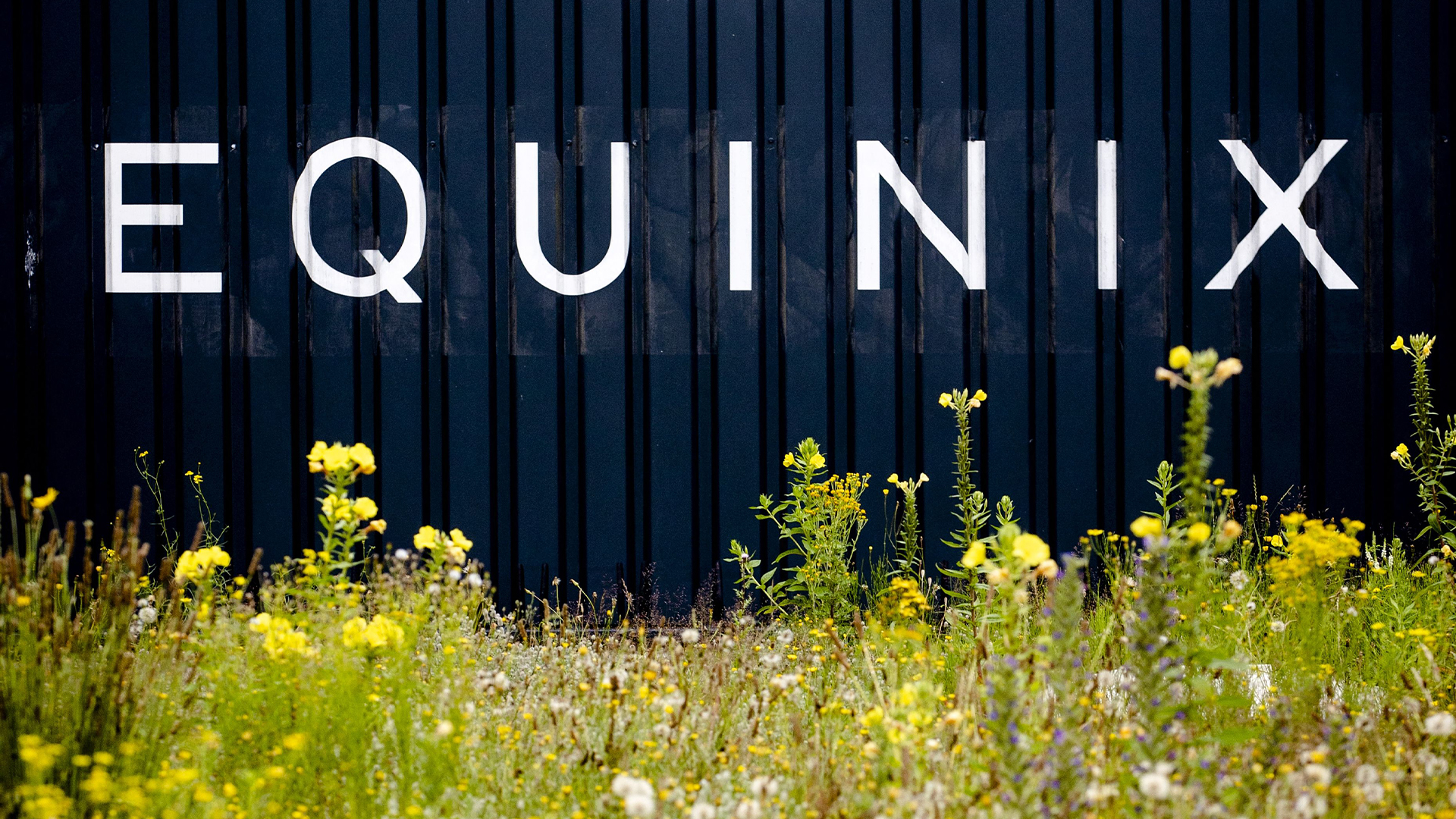 Equinix and Dell Technologies want to transform AI infrastructure
Equinix and Dell Technologies want to transform AI infrastructureNews Dell AI Factory technology will be integrated into the Equinix global network of data centers
By Emma Woollacott Published
-
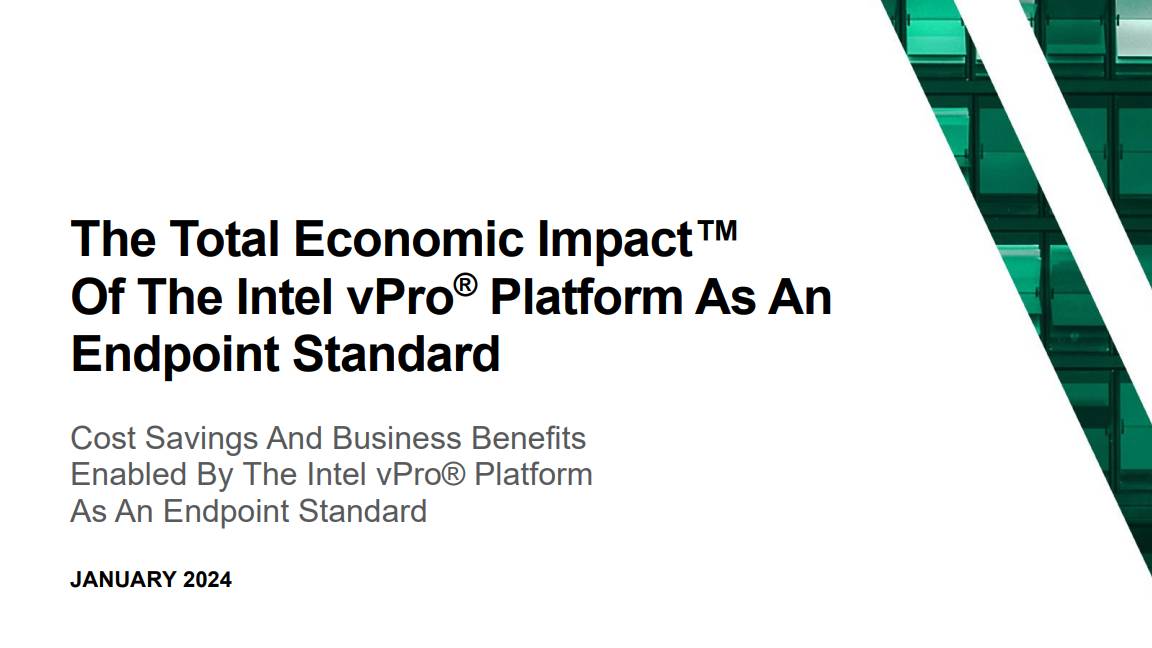 The Total Economic Impact™ of the Intel vPro® platform as an endpoint standard
The Total Economic Impact™ of the Intel vPro® platform as an endpoint standardwhitepaper Protection across AI attack vectors
By ITPro Published
-
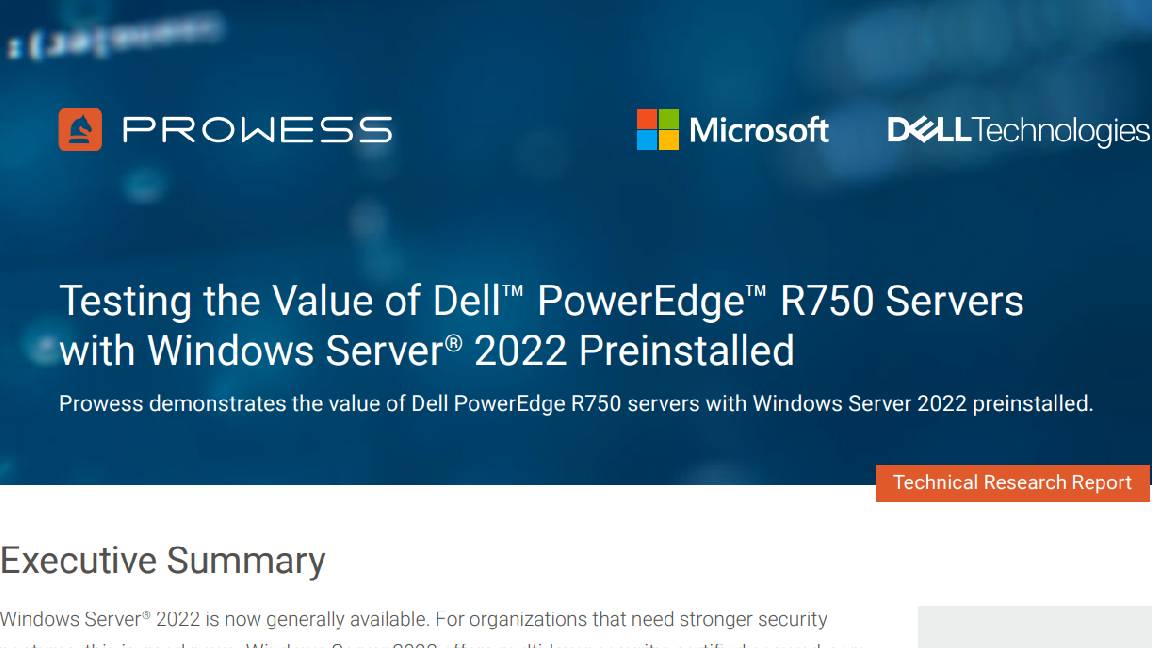 Testing the Value of Dell™ PowerEdge™ R750 Servers with Windows Server® 2022 Preinstalled
Testing the Value of Dell™ PowerEdge™ R750 Servers with Windows Server® 2022 Preinstalledwhitepaper Protection across AI attack vectors
By ITPro Published
-
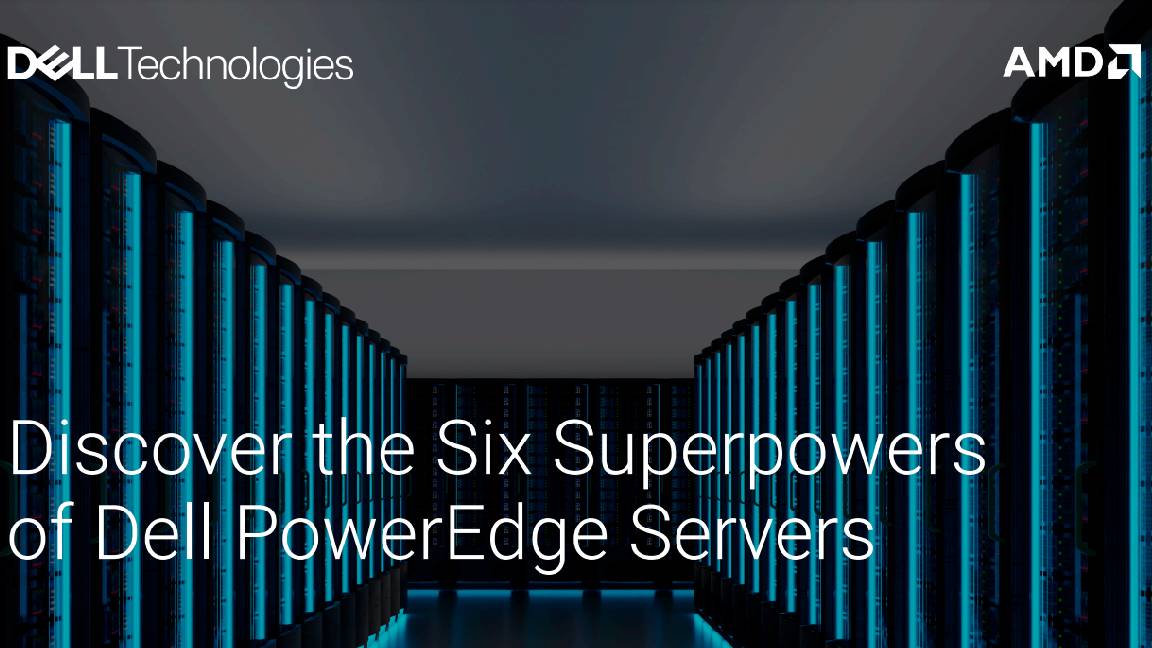 Discover the six superpowers of Dell PowerEdge servers
Discover the six superpowers of Dell PowerEdge serverswhitepaper Transforming your data center into a generator for hero-sized innovations and ideas.
By ITPro Published
-
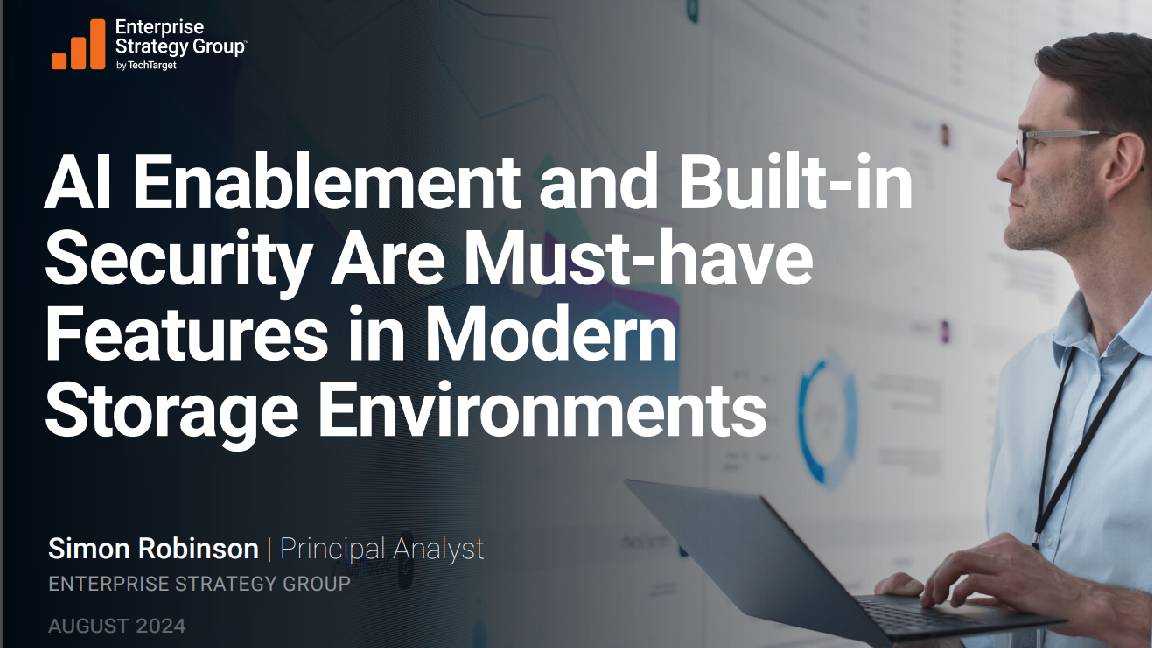 AI enablement and built-in security are must-have features on modern storage environments
AI enablement and built-in security are must-have features on modern storage environmentswhitepaper Modernize storage infrastructure to serve future application demands
By ITPro Published
-
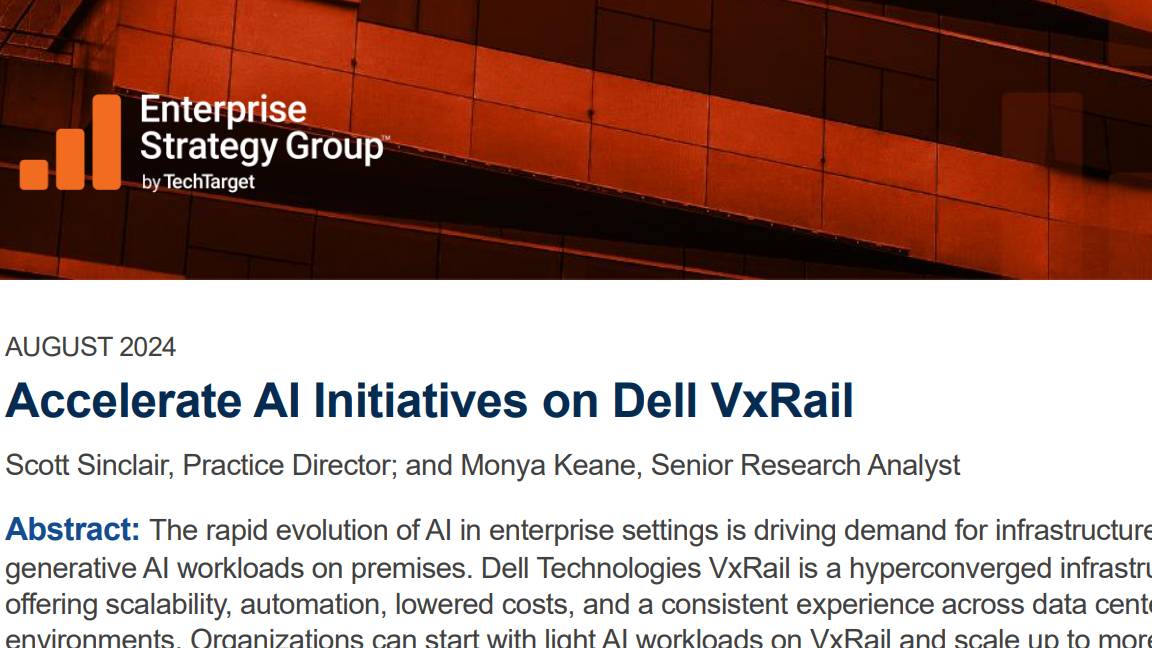 Accelerate AI initiatives on Dell VxRail
Accelerate AI initiatives on Dell VxRailwhitepaper Protection across AI attack vectors
By ITPro Published
-
 Choose high data-efficiency technology for lower storage TCO
Choose high data-efficiency technology for lower storage TCOwhitepaper Choose high data-efficiency technology for lower storage TCO
By ITPro Published
-
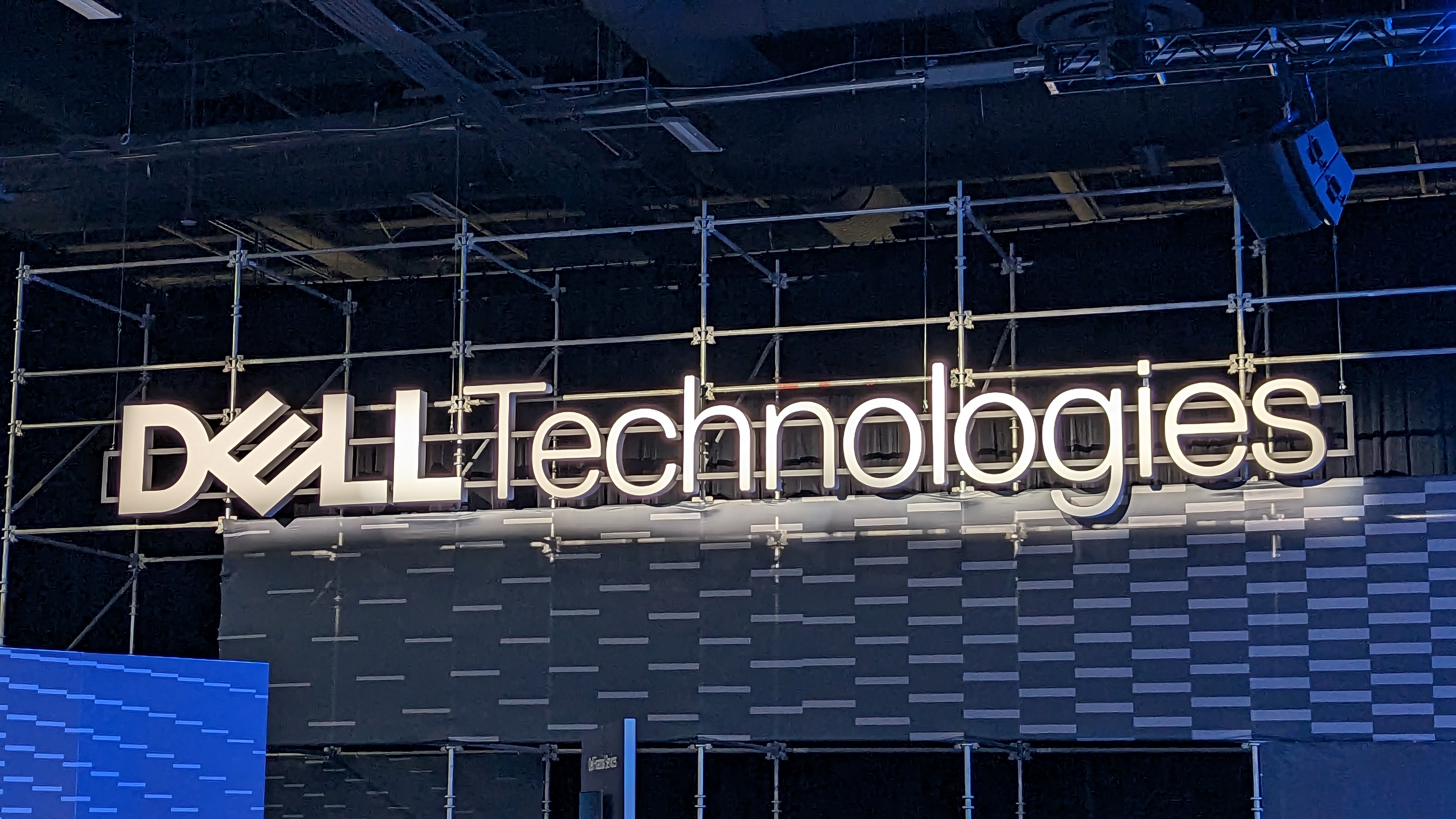 PowerStore resiliency
PowerStore resiliencywhitepaper PowerStore resiliency
By ITPro Published
